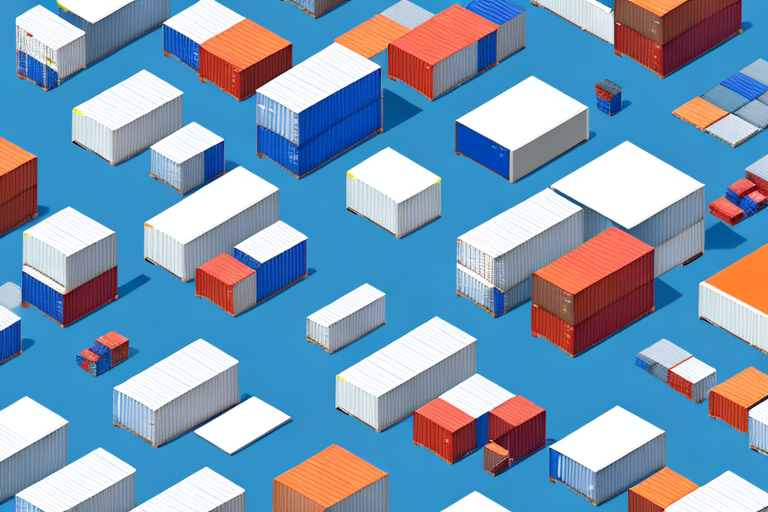The Importance of Proper Packaging for Shipments
Packaging plays a vital role in ensuring that your shipments reach their destination intact. Poorly packaged items can easily become damaged or lost in transit. To avoid this, use high-quality packaging materials that provide sufficient protection for your products. Ensure that everything is securely packaged and that packages are correctly labeled, facilitating proper handling by transport workers.
Additionally, consider the weight and size of your packages. Overweight or oversized packages can incur additional fees and may not be accepted by some carriers. Accurately weigh and measure your packages, and choose the appropriate shipping method based on their dimensions and weight.
Eco-friendly packaging options are increasingly popular. Utilizing sustainable materials and reducing excess packaging can benefit the environment and save money on shipping costs. Consider using biodegradable or recyclable materials and minimizing the amount of packaging used to reduce your carbon footprint.
Common Causes of Lost Shipments and Prevention Strategies
Misplacement During Shipping
Lost shipments can occur when packages are misplaced during the shipping process. To prevent this, use advanced tracking software that allows you to monitor the progress of your shipments in real-time. Regular communication with your carrier can help address any issues promptly, reducing the likelihood of misplacement. According to the UPS Shipping Report, effective tracking reduces lost shipment incidents by up to 30%.
Incorrect Labeling or Addressing
Incorrect labeling or addressing is a leading cause of lost shipments. If the shipping label is illegible or the address is incorrect, packages may be delivered to the wrong location or returned to the sender. To prevent this, double-check all shipping labels and addresses before dispatching your packages. Implementing automated address verification software can further ensure accuracy. The USPS Address Verification Service highlights that accurate addressing can decrease return rates by 25%.
The Role of Tracking and Communication in Shipment Security
Tracking and communication technologies are essential tools for preventing lost shipments. These technologies provide real-time visibility into your supply chain, allowing you to monitor shipments from departure to delivery. This visibility helps identify and address potential issues before they escalate into major problems.
Effective communication with customers and carriers enhances shipment security. Providing customers with real-time updates on their shipments fosters trust and transparency, leading to improved customer relations and reduced instances of lost shipments. Studies from the U.S. Department of Transportation indicate that enhanced communication can reduce lost shipment rates by 20%.
Address Verification and Accuracy
Inaccurate addresses are a common reason for lost shipments. Implementing address verification software ensures that shipments are delivered to the correct destination by verifying and correcting addresses before dispatch. This step not only prevents delivery mishaps but also reduces the number of returned shipments, saving time and costs associated with reshipping.
Tools like the AddressVerify service provide comprehensive address validation, which can significantly enhance the accuracy of your shipping process. Accurate addressing is crucial for maintaining efficient delivery operations and minimizing losses.
Insurance Protection for Shipments
Obtaining adequate insurance is a critical step in protecting your business against lost or damaged shipments. Business insurance can cover financial losses if shipments are lost, providing peace of mind and financial security. It's essential to understand the terms and conditions of your insurance policy to ensure comprehensive coverage.
Not all insurance policies offer the same level of protection. Some may have exclusions or limitations that could leave you vulnerable to losses. Working with a reputable insurance provider experienced in shipping insurance can help you assess your risks and determine the appropriate level of coverage. Resources like the Forrester Report on Shipping Insurance provide valuable insights into selecting the right insurance for your needs.
Managing Shipping and Inventory to Reduce Losses
Effective management of shipping and inventory is vital in reducing the occurrence of lost shipments. Real-time inventory updates allow you to track inventory levels accurately, ensuring that you can quickly identify and address any discrepancies or losses.
Implementing a robust inventory management system can help streamline your shipping processes. This includes maintaining proper documentation, regular inventory audits, and clear communication with your carriers. Having a backup plan, such as alternative carriers, can also mitigate the impact of unexpected delays or cancellations. According to Supply Chain Digital, proactive inventory management strategies can decrease lost shipment rates by up to 15%.
Choosing a Trustworthy Shipping Provider
Partnering with a reputable shipping provider significantly reduces the risk of lost shipments. Experienced providers offer reliable delivery services, regular updates, and guaranteed on-time delivery, enhancing the overall security of your shipments.
Trustworthy shipping providers often have established relationships with carriers, enabling them to negotiate better rates and optimize shipping strategies. This partnership not only ensures the safe delivery of your products but also helps in cost-effective shipping solutions. Insights from the Courier2024 highlight that businesses working with reputable providers experience fewer lost shipments and higher customer satisfaction rates.
Technological Advances in Shipment Tracking and Delivery
Advances in technology have transformed the shipping industry, making shipment tracking and delivery more efficient and accurate. Technologies such as the Internet of Things (IoT) are integrated into shipping containers, trucks, and warehouses to provide real-time data on the location, temperature, and humidity of shipments. This data is transmitted to central systems accessible by both shippers and receivers, enhancing delivery accuracy and reducing the risk of damage due to environmental factors.
Moreover, automated tracking systems and wireless communication technologies enable businesses to monitor their supply chains continuously, identifying areas for improvement and optimizing logistics operations. The adoption of these technologies has been shown to reduce lost shipments by up to 40%, according to reports from the McKinsey & Company.
In conclusion, lost shipments can result in financial loss and negatively impact your business's reputation. By implementing preventive measures such as proper packaging, effective tracking, accurate addressing, adequate insurance, proactive inventory management, and choosing reliable shipping providers, you can minimize the risks associated with lost shipments. Embracing technological advancements further enhances shipment security and operational efficiency, safeguarding your business against potential losses in the shipping process.




















